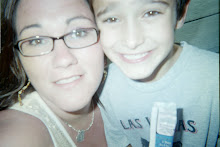Family Education
Family Education plays an important role in the lives of those who are recovering from alcoholism or drug addiction. As family members gain a better understanding as to how their loved ones become addicted and the supportive role that the family plays in helping the addicted loved one in recovery the better the prospects are that the addicted individual will remain in recovery.
Unlike in functional family environments where no one person takes a central role, in a family where addiction is present the addicted individual takes center stage. Because the alcoholic or drug addicted individual’s behavior is so unpredictable all their attention focuses on the addicted family member. As a result of the emotional upheaval and the isolation that the family feels they begin to adopt the perspectives of the addict. They internalize the rationalizations that heaps blame upon themselves for the addict’s behavior. This ultimately leads to family denial of the addict’s illness and the perpetuation of their unwarranted self blame.
Addiction is a family illness. Regardless of the personalities of the individual family members, they will usually react in a similar manner as a result of the strain and stressors exerted by the addicted family member. These family reactions can range from enabling behaviors which supports the addict’s maladaptive responses to life’s stresses to obsessive and compulsive behaviors which mimic the addict’s behaviors.
Family education that is held concurrently as the addicted family member is in alcohol or drug addiction treatment, provides support and information that family members need in order to bring stability to the life of chaos that they are currently experiencing. This educational process provides understanding and encouragement as families learn that there are specific phases that recovery takes as healing in the addicted brain occurs.
During family education, family members learn to breakthrough the denial that they are also suffering and find reprieve from the isolation that they are experiencing as a result of the behaviors of the addict. The family members within the group are able to share in a confidential environment their struggles with shame, secrecy and isolation. Through this group process family members become empowered and encouraged as they learn that they are not alone in their struggle and that there is help not only for their loved one but just as importantly, for themselves as well.
Sunday, March 29, 2009
Subscribe to:
Post Comments (Atom)


No comments:
Post a Comment